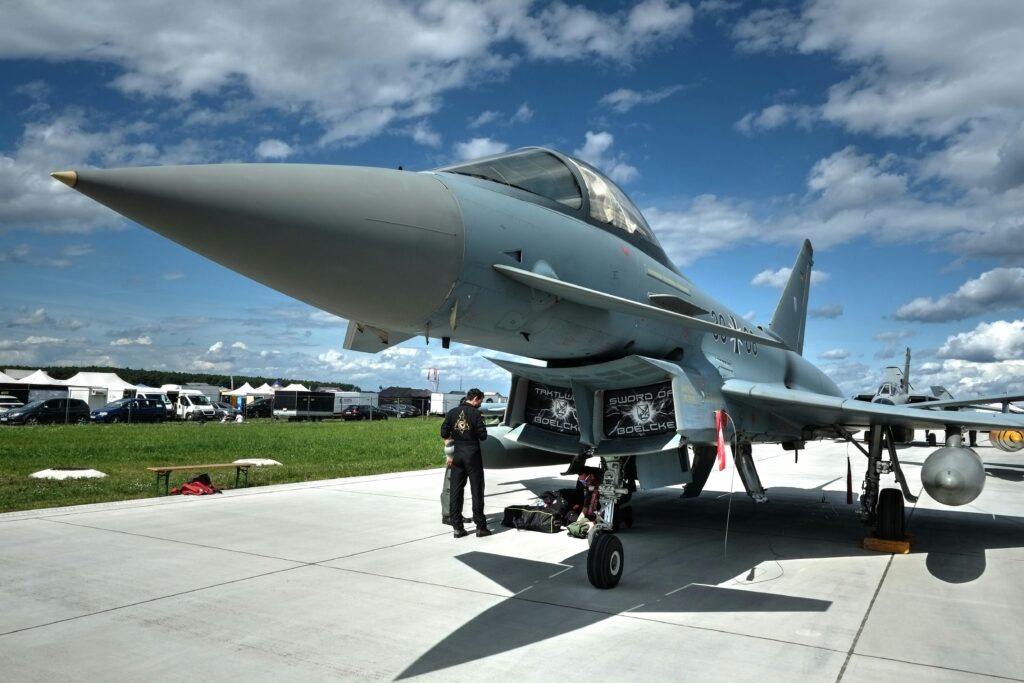The new U.S. Secretary of Defense, Pete Hegseth, is pushing for a stronger NATO with a focus on military power. During his visit to Brussels, he urged alliance members to strengthen their armed forces instead of relying too much on diplomacy. His message signals a shift in U.S. defense priorities under Donald Trump’s administration.
Clear Message to NATO Allies
Before attending a key meeting with defense ministers from over 50 countries, Hegseth made his position clear. In a post on X, he stressed that NATO must enhance its military strength to maintain influence around the world. His comments set the tone for discussions in Brussels, where he attended a session on military aid for Ukraine. The UK now leads these talks after the U.S. stepped back from its previous role.
Hegseth is scheduled to meet with defense ministers from all 31 NATO countries on Thursday. He will also hold talks with Ukraine’s Defense Minister, Rustem Umerov, at the NATO-Ukraine Council. These meetings will likely shape the alliance’s approach to European security in the coming months.
Europe Must Boost Defense Spending
During a visit to U.S. military bases in Germany, Hegseth called on European NATO members to take on more responsibility for their defense. He backed Donald Trump’s demand that European countries allocate at least 5% of their GDP to defense spending. His remarks align with Trump’s long-standing stance that NATO members should pay more to support collective security.
Concerns have grown over the possible withdrawal of U.S. troops from Europe. More than 100,000 American forces are currently stationed across the continent. Hegseth reassured NATO allies that there were no immediate plans to reduce troop levels. However, he noted that the U.S. would reevaluate its global military presence to focus more on the Indo-Pacific. This shift reflects rising tensions with China and a broader effort to counter its growing military influence.
A New Direction for NATO?
Hegseth’s push for a stronger NATO could lead to significant changes in the alliance’s strategy. His call for greater military readiness comes as European leaders debate how to balance defense priorities. Some NATO countries support increased spending, while others are cautious about meeting Trump’s demands.
Germany and France have already pledged to boost their military budgets. However, smaller NATO nations face challenges in reaching the 5% target. Economic constraints and political debates could slow down efforts to increase defense investments.
Meanwhile, tensions with Russia remain high. NATO has continued to provide military aid to Ukraine, despite Russia’s warnings. The ongoing war has pushed European countries to rethink their security strategies. Hegseth’s demands could further accelerate these changes, reshaping NATO’s role in global security.
Shifting U.S. Priorities
The Biden administration previously focused on diplomacy and coalition-building within NATO. Under Trump, the approach appears to be shifting toward a more assertive military posture. This change reflects broader efforts to prioritize U.S. interests and ensure that NATO allies contribute more to their own defense.
While some European leaders support this approach, others worry about potential divisions within the alliance. NATO has relied on strong cooperation for decades. A more transactional approach could test relationships between member states. Hegseth’s comments signal that the U.S. expects tangible commitments from European allies, not just diplomatic assurances.
The Future of NATO
In the coming months, it will become clear how NATO members respond to Hegseth’s call for greater military strength. The pressure to boost defense spending is likely to remain a key topic in future meetings. European leaders must now decide whether to meet the new U.S. expectations or push back against them.
As NATO adapts to shifting global threats, its role in international security will continue to evolve. Hegseth’s vision for a stronger, more combat-ready alliance could reshape NATO’s future. However, achieving this goal will require cooperation and financial commitments from all member states.
For more updates on NATO and global defense policies, visit Euro News 24.
